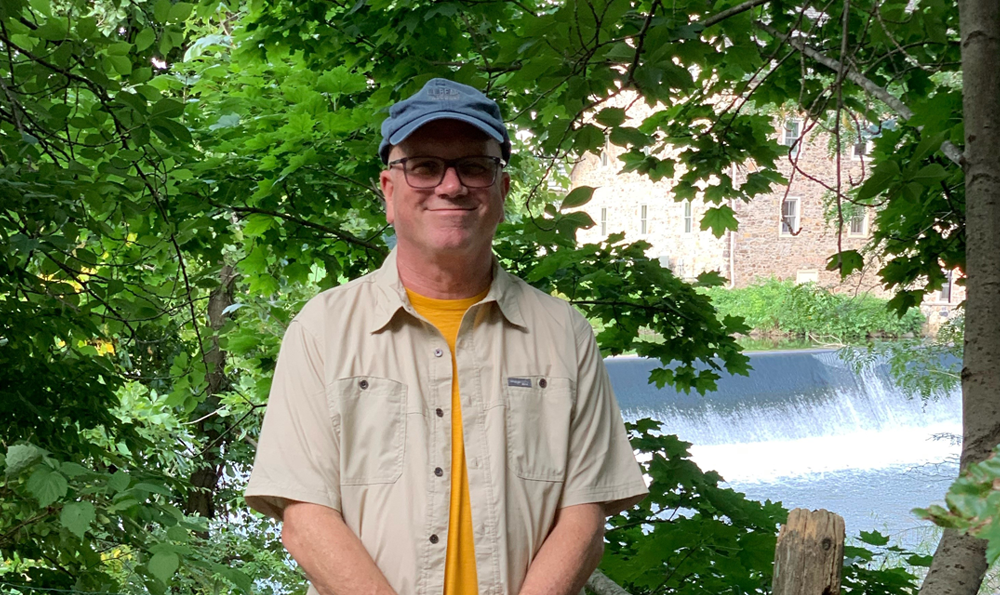After a tumultuous eight-year journey of multiple cancer diagnoses and surgeries, 70-year-old Tony has a message of hope. He is finally cancer-free. When he looks at his life today, Tony credits his expert health care team and the healing power of holistic therapies that made his recovery—and survivorship—possible.
A melanoma needing immediate attention
Tony’s journey began in 2017 when he noticed changes in a lesion on his back. It had grown to the size of a penny and was getting darker. A quick referral from his primary care doctor and dermatologist led Tony to Atlantic Health’s Carol G. Simon Cancer Center at Morristown Medical Center.
Here, surgical oncologist Kai Bickenbach, MD, biopsied and removed the lesion on Tony’s back, confirming that it was, in fact, melanoma. Unfortunately, by the time Tony saw Dr. Bickenbach, his melanoma had reached Stage 3, meaning it had already spread to his lymph nodes.
Finding lifesaving interventions
After Dr. Bickenbach surgically removed the lesion, his colleague, surgical oncologist Eric Whitman, MD, started Tony on an intense immunotherapy regimen that involves a medication that triggered Tony’s body’s own immune system to find and destroy any remaining cancer cells.
The surgery and immunotherapy worked. But this health scare was just one of a litany of health crises to come. In 2018, a routine scan detected a neuroendocrine tumor on Tony’s pancreas. Once again, Dr. Bickenbach performed an effective surgical solution known as the Whipple procedure, designed to rid the pancreas of any potential cancer cells.
Health concerns continue to mount
One year later in 2019, Tony underwent a liver resection to remove a suspicious lesion. Thankfully it was benign. Two years later in 2022, another challenge emerged. Tony had colon cancer, caught early during a routine colonoscopy. He was treated and cured, but the physical toll on Tony was growing.
Then in 2023, it all came to a head when Tony had a cardiac event. It was detected by Atlantic Health interventional cardiologist Mark Blum, MD, and surgically repaired by cardiothoracic surgeon John Brown, MD.
“There just aren’t enough ways to say thank you to all these doctors and caregivers,” says Tony. “Bickenbach, Whitman, Blum, Brown, nurse practitioner Mary Baker, and the nurses, schedulers, and front desk teams at Morristown Medical Center. Everyone knew me and lifted me up whenever I was there.”
The benefits of integrative oncology
What makes Tony’s story unique is not just his recovery, but what he chose to do with it. During immunotherapy treatments with Dr. Whitman, Tony discovered Reiki, a Japanese energy healing practice offered at Morristown’s Integrative Oncology Center.
“I was feeling overwhelmed after an infusion, so I wandered into a walk-in Reiki session, laid on the table, and an incredible practitioner placed her hands near my head,” says Tony. “It caused my whole body to vibrate from the inside out. It was peaceful, powerful, and I knew I needed more of it.”
Moving from survivor to healer
Encouraged by Jean Marie Rosone, LCSW, coordinator of integrative oncology at Morristown Medical Center, Tony began attending Reiki sessions and eventually trained to become a Reiki practitioner for patients undergoing treatment.
His wife Sandy, who was by his side from the moment he was diagnosed with melanoma and has supported him every step of the way, also became a certified Reiki volunteer. After 33 years of marriage, the two now have a new shared purpose: bringing healing to others.
“When you're sick, your stress is sky high. If we can help someone relax—even for just a few moments—it gives their body a better chance to heal,” says Tony, who explains how therapies like Reiki, acupuncture, nutrition, and support groups were all central to his healing.
“I’m not the only one who had it rough,” he says. I know so many people who are still fighting. I just feel so lucky—and so grateful—to be here to give something back.”












